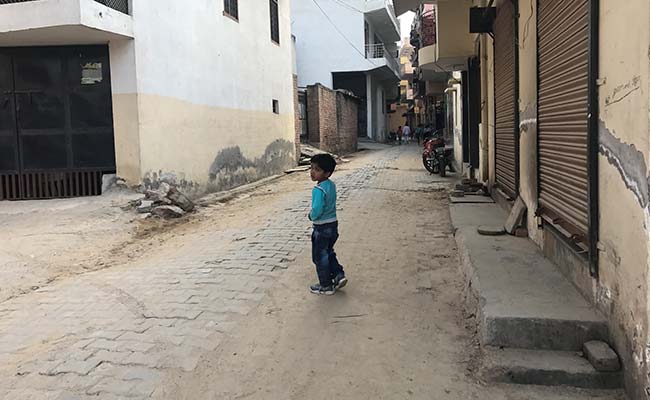Highlights
- Women sarpanches are leading the drive to make villages cleaner
- They believe that, as women, they understand the importance of sanitation
- Recently, PM Modi felicitated such women in a function in Gandhinagar
New Delhi: “I myself have defecated in the open in the past,” says a rather embarrassed Seema Raghav, “20 years ago, when I got married, there were no toilets. We would go out in the fields.” Today, the scenario couldn’t be more different—the fields have been replaced by high-rise buildings, every household has their own toilet and the 40-year-old Seema Raghav is now the Sarpanch of her village, Badha, in Haryana.
Most houses in Badha, which is about 10 kilometres away from Gurugram, have had toilets for the past ten years. However, according to Ms Raghav, this does not mean that the drive for swachhta is over.
Also Read: The Cost Of Development: Gurugram Villages Face Sanitation Woes Due To Rapid Growth
“Over the past year, we have done a lot—placed dustbins all around, fixed broken drains, built separate toilets for boys and girls in the local school,” says Ms Raghav.
Women, according to her, have a central role to play in the drive towards a ‘Swachh’ India. In fact, she has helped create a ‘Ladies Group’ of proactive women in the village to give feedback and highlight the problems related to sanitation which need to be solved in the village.

As Badha’s Sarpanch, Seema Raghav has initiated several programs to improve the village’s drainage system
Also Read: Why ‘Swachh India’ Is The Biggest Women’s Movement At The Moment
Women in the Forefront
Does having a woman at the helm of things help? Yes, says Anita Devi, the Sarpanch of Nawada village, just a few kilometers away from Badha.
“I keep hearing about the work being done in other villages and for the ones with women sarpanches, in particular, there is a huge difference in the swachhta,” she says.
In fact, at ‘Swachh Shakti’, a Women’s Day function in Gandhinagar, Prime Minster Narendra Modi felicitated women who have contributed to the Swachh Bharat Mission. Among those honoured were several sarpanches, including the Sarpanch of Shalbari in West Bengal who had successfully campaigned to convince fellow villagers to construct toilets.
Read More: Swachh Crusaders Honoured By Prime Minister Narendra Modi On Women’s Day
I can see the determination to make a positive difference when I meet these women Sarpanchs. They want to bring a qualitative change: PM
— PMO India (@PMOIndia) March 8, 2017
Ms Ankita believes that the reason for this is that women have more to benefit from better sanitation and cleanliness and as leaders, this remains a priority.
“Women are central to cleanliness and sanitation. More than anyone, they understand the importance of this. Not having a toilet barely affects men. We are the ones who suffer,” she says, “As the first woman sarpanch of my village, making our village cleaner and creating awareness about this was and is a priority for me.”
Since Ms Anita took over the reins of Nawada’s panchayat a year ago, a lot has been done to improve the sewerage system and drains, and more hands have been hired to collect the garbage and clean public spaces.
It is no secret that women—both on a personal level as well as from the traditional roles society ascribes to them—have a huge stake in the Swachh Bharat Mission. This means that it is not surprising that women are taking on and will continue to take on leadership positions in the fight for cleanliness—a trend that is definitely worth following.































